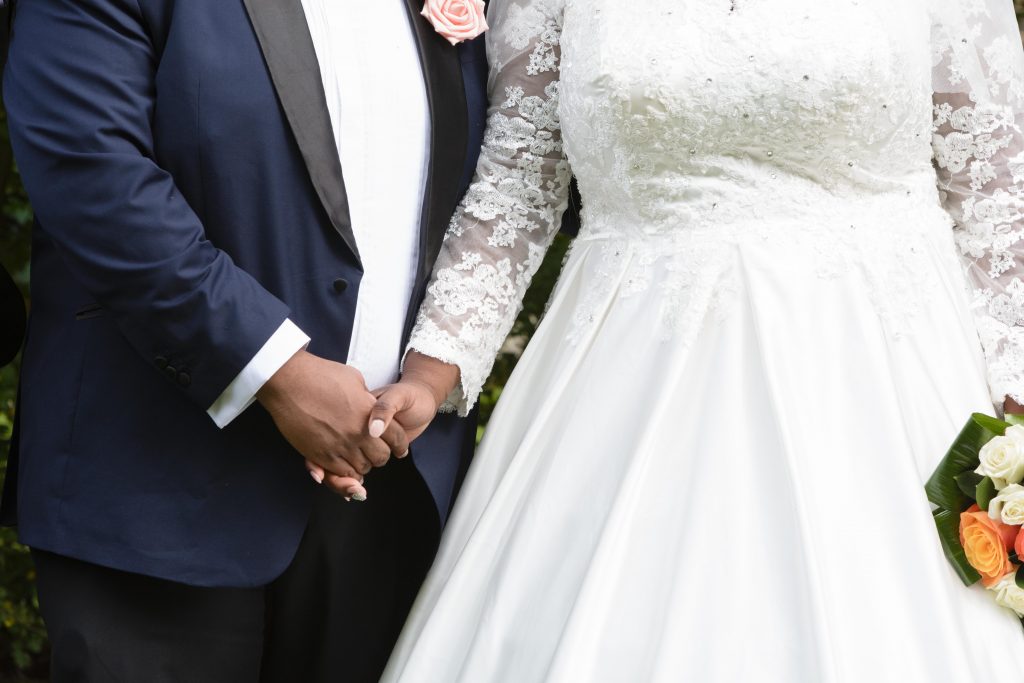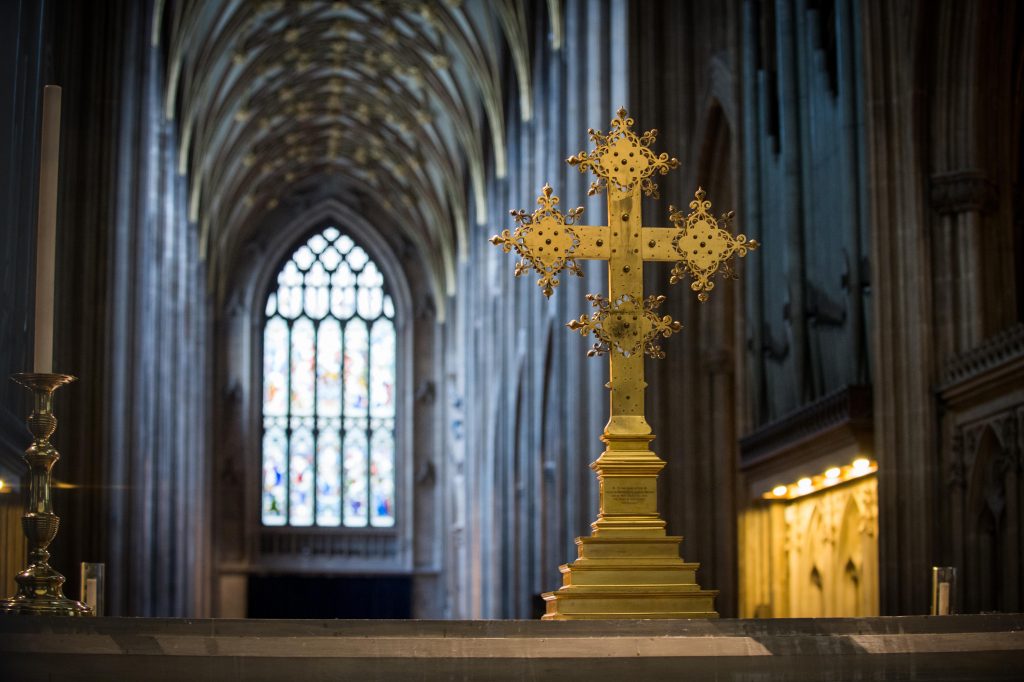We are delighted
We are delighted that you are thinking of getting married in one of our churches.
This is really great news, and we want to help you at each step, as you make this wonderful commitment to one another and in the sight of God.

Meet with the Vicar
Your wedding day will testify to the love you have for one another, but it also has a legal context.
Consequently, there are several formal matters that will need your attention before the wedding.
The first of these will be to meet the parish priest.
If you are hoping to get married in one of our parish churches, it important that you contact the parish priest soon after your engagement.
The parish priest can then advise you about how to proceed.
Legal Preliminaries: Wedding Banns Application form


When you fill in your wedding banns application form, you are providing the personal information that will appear on your marriage certificate.
On completing the form, the parish priest will ask you to sign and date the form.
By signing the form, you are indicating that the information that you have provided is accurate.
Your completion of the wedding banns application form, also represents your application to enter into the legal framework of marriage, made available under UK Law.
You might already be familiar with part of this, when towards the beginning of the marriage service, the priests asks both the congregation – and you the couple – whether you are legally free to marry.
However this important legal part of the marriage service began early in the process when your wedding banns were called.
In Churches, your wedding banns are often called on three separate Sundays, the last of which will be about a month before the date of your wedding.
If you both live in the parish you are to be married in, then you will only need to arrange your wedding banns to be read at the church you are to be married in (also see note below).
If either of you (or indeed both of you) live outside the parish, then you will need to arrange for your wedding banns to be read in that church too.
You can establish which parish you live in, by visiting: www.achurchnearyou.com.
This might all sound complicated, so do contact the parish priest as soon as possible. They can answer queries that you may have.
Costs
The basic cost for a wedding in church (including the reading of one set of wedding banns) increases slightly each year. In 2023 this basic cost was £539.
This does not include the cost of an organist, bellringer, choir or – and especially recommended between September and May – heating. These will be charged in addition to the basic cost.
As we have indicated the cost of the wedding will increase year on year, and the parish priest will be able to advise you on this.
Obtaining your Marriage certificate
Since May 2021, the way for obtaining your marriage certificate has changed.
On the day of your wedding, you and your witnesses will sign a ‘Marriage Document’. This is an A45 document predicted on a computer (ie not he traditional marriage certificate).
After the wedding service, the parish priest will ensure that the signed Marriage Document is taken to the appropriate Registry Office .
Once delivered to the Registry Office it might be a couple of weeks before your Marriage Certificate is available.
All you then do is apply for it via the link below.
https://apps2.staffordshire.gov.uk/web/onlineorder/default.aspx?FormID=1
- If you need a copy of your marriage certificate sooner, please liaise directly with the relevant Registry Office.
Lorem ipsum dolor sit amet, consectetur adipiscing elit. Ut elit tellus, luctus nec ullamcorper mattis, pulvinar dapibus leo.
Note: On the reading of wedding banns in any of the four churches in the benefice.
The churches of All Saints Kings Bromley, St. Peter Yoxall, St Nicholas Mavesyn Ridware and St Michael and All Angels, Hamstall Ridware form a family of four parishes.
Our family of churches are part of the Church of England Diocese of Lichfield.
The Bishop of Lichfield has granted us legal permission to read wedding banns at any of our four churches. This arrangement is in place because of a lack of clergy to read Wedding Banns at services.
All it means from your perspective, is that your wedding banns may not always be read at the parish church you are to be married in.